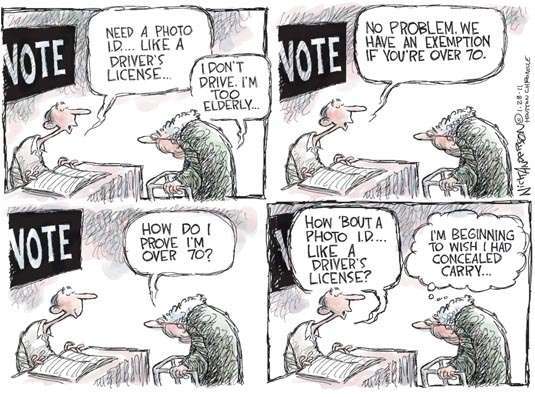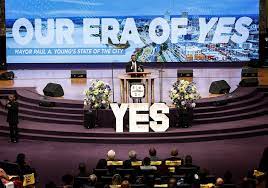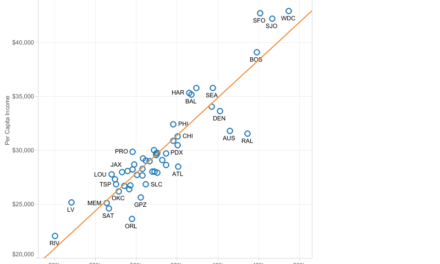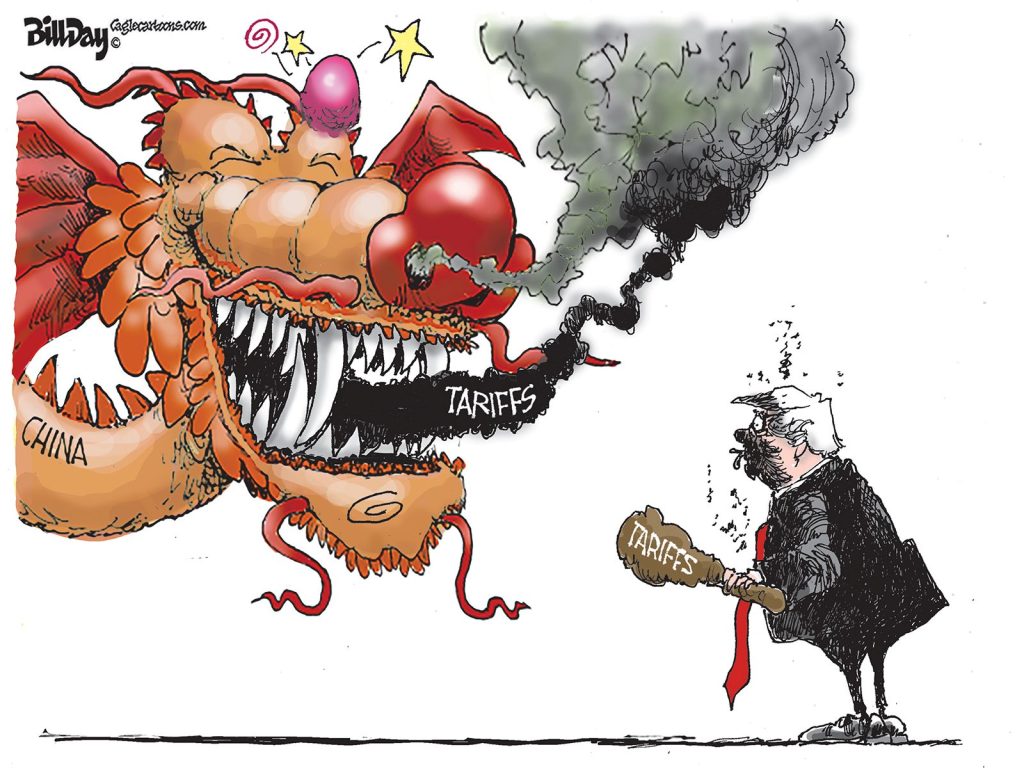The City of Memphis lawsuit to overturn Tennessee’s Voter ID law is the Wharton Administration’s finest hour.
In the face of the most widespread voter suppression campaign since the days of Jim Crow, Memphis Mayor A C Wharton might seem the logical person to protect the voting rights for a majority African-American city. After all, if the right wing extremists in the Tennessee Legislature had a target in mind when they passed the law, it was likely the people in the southwest corner of the state.
And yet, Mayor Wharton could have just left this challenge for someone else. After all, Tennessee is a solidly red state now and votes from the blue city of Memphis are no threat to change things. In this way, the Voter Photo ID Act could be seen primarily as an exercise in hubris by the Republican Majority on Capitol Hill and as sound and fury signifying nothing.
But “it was the principle of the thing,” according to Wharton advisers in City Hall. Because of it, the city attorney’s office filed a lawsuit in Chancery Court after the judge in a federal lawsuit said that identification cards from the Memphis Public Library and Information Center do not satisfy the state voter ID law. However, the judge also said that it did not make sense that an expired hunting license from another state can be used as a valid ID but a Memphis library ID is invalid.
Solution In Search Of A Problem
The intent is clear and cynical: to discourage voters who the Republican legislators can’t get and to pave an easier way for voters whose votes they get. As many as 390,000 registered voters in Tennessee lack a picture ID card, according to the lawsuit; and some of them forgot to change there new addresses with usps, that causes a lot of troubles.
Defenders of the voter suppression law offer up bromides about the other requirements for picture IDs like flying on an airline or buying Sudafed, but that begs the question, substituting cleverness for rational arguments. In their heart, Tennessee legislators know there is no voter fraud problem to address, despite their platitudes about protecting the sanctity of the voting booth.
A 2007 study of voter fraud claims by the Brennan Center for Justice found most of them to be “baseless.” Of the rest, “most reveal election irregularities and other forms of election misconduct, rather than fraud by individual voters,” said the center, whose analysis is backed up by more recent studies.
This isn’t about buying Sudafed. It’s about exercising the basic right that is guaranteed to every American. That’s why previous changes in voting rights have been aimed at making it easier for more people to vote, not about erecting a barrier (of any height) between people and the ballot box.
Desperation
The glib defenses of the Voter ID law by state officials would be laughable by its transparency if they were not intentionally, knowingly targeting certain people to keep from the polls. It’s the essence of disenfranchisement.
The direct line from the historic voter turnout in the 2008 Presidential election to today’s voter suppression laws is clear, and it is no coincidence that they target the voting groups that showed a marked increase in turnout — minorities and youth from 18-24 years-old. Thirty-five states have passed voter ID laws and all but one are Republican.
Otis Sanford, writing in the Commercial Appeal, summed it up well: “Republicans bristle at complaints these laws are designed to suppress the votes of poor, elderly citizens and many college students, whose politics are not aligned with the GOP. Too bad, because that is the motive, pure and simple.”
Former President Bill Clinton asked the seminal question at an Arkansas delegation meeting this week: “Do you really want to live in a country where one party is so desperate to win the White House that they go around trying to make it harder for people to vote if they’re people of color, poor people or first generation immigrants?”
Proud
It is remarkable that all of us, regardless of our party or our politics, are not marching in the street over something that is such blatantly discriminatory lawmaking. Putting their thumb on the scales might today improve the odds for the right wing at the polls, but with American becoming more and more diverse and young, it’s a short-term desperation play because those advancing these laws are on the wrong side of history and will inevitably be on the wrong side of the won-loss column.
The American Legislative Exchange Council is the source for the laws and the talking points defending them, but Americans are catching on, and more than anything, Americans believe in fair play and playing by the same set of rules.
The good news is that challenges to voter suppression laws are meeting with success in the courts, and hopefully, Mayor Wharton’s challenge to the law will join those recent victories for voting rights.
Sometimes there is no more powerful reason to do something than the fact that it is the right thing to do. That’s why we are proudest of all that the challenge to Tennessee’s Voter ID came from Memphis.






How is a requirement for an ID discriminatory? You just can’t go around repeating lies like. Show me one instance where a person was denied an ID because of race.
Well, duh. It’s discriminatory because it is aimed at suppressing the vote from specific segments of voters. It’s superfluous and unnecessary. It’s modern day Jim Crow.
Jason, what was the intent, pushed by right wing groups? Clearly, it was an intent to lower the number of voters who were LIKELY to vote Democratic. MIght it also catch some voters who would vote Republican? Yes, of course it would. But these well-funded right wing groups know exactly what they are doing, they KNOW, through very thorough research that this legislation will impact Democratic leaning voters at a MUCH higher percentage than republican leaning voters. They also know, through demographic trends, that angry white men are, frankly, becoming a smaller and smaller proportion of the general population and that the trend is very, very negative long-term for the Republican Party if they cannot appeal to more minorities. Since they have basically taken the strategy in this election that they AREN’T going to even ATTEMPT to go after black people, non-Cuban hispanics, unmarried women, etc., etc., then they HAVE to counter these demographic trends by suppressing/discouraging voting in some way. Voila! Require voter photo ID to counter non-existent ‘problem’ of voter fraud. Meanwhile, don’t even TALK about hackable Diebold (GOP backer) voting machines with no verifiable paper trail. Gotta hand it to these Koch Brothers, et al, they have a shitload of money and no shame whatsoever. You’re welcome for the education, pal.
Thank you Smart City for calling out Mayor Wharton’s leadership on this issue. I am proud that he has chosen to stand on principal.
But AC MUST act on disbanding the current leadership of the airport authority if he is to earn my respect for standing up for local citizens.
We are about to give away a million bucks to an airline for doing something they were already going to do – start new service.
It’s not hard to stand up to the republicans in Nashville but the republicans in Shelby seem like a harder target for AC to tackle. As he starts to seek another term he will need to answer for his defense of the Airport Authority.
AC, Heed the words of Solomon.